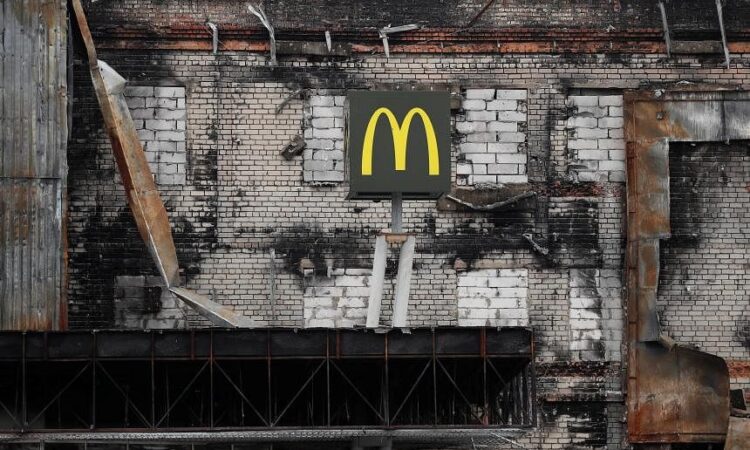
MOSCOW – It’s been nearly a year since Russia invaded Ukraine, but shoppers in Moscow can still get ahold of Activia yogurt and Oral-B electric toothbrushes and L’Oréal serums.
Some products are left over from the days before President Vladimir Putin sent troops across the border, but many goods continue to be supplied by American and European companies with outposts in the pariah state.
And should these companies change their mind about staying in the face of mounting legal and reputational risks, they now have another challenge: the Kremlin is making it more expensive to leave.
While there are no Western sanctions on the everyday consumer sector, restrictions on Russian banks and individuals have made operating in the country more difficult.
Groups that have been open about their choice to stay, such as Colgate, Procter & Gamble and L’Oréal, have a complicated balance to strike: They must protect their bottom lines and local staff, retain a foothold in a major market, and not come across as morally compromised, even as they pay taxes to the Kremlin.
Outgoing Unilever chief executive Alan Jope, for instance, has said that he has a responsibility to the 3,000 employees in Russia, and that he doesn’t want Unilever’s four in-country production sites to fall into the hands of pro-Kremlin tycoons or the state itself.
On Thursday, Carlsberg warned of the risk that Russian authorities could nationalise a business to keep its workforce at prewar levels if they suspect it is being deliberately stripped of value. In response to this claim, Kremlin spokesman Dmitry Peskov pointed to the labor laws in place to protect workers in Russia. “It’s a lengthy process,” he added.
These challenges help explain why many promised corporate departures simply never materialised.
Strepsils maker Reckitt Benckiser said in April that it would transfer ownership of its Russian business to a third party or local employees, but so far has failed to do so. Danone announced its exit in October but has yet to find a buyer. Tobacco maker Philip Morris International, which had planned an exit by the end of last year, said it was still struggling to obtain Russian approval.
Few companies have been as decisive as McDonald’s, which sold its Russian restaurants in May, three months after the war began. But such a move is no longer so easy: There are fewer potential buyers who aren’t subject to sanctions, and the Kremlin has been increasingly unwilling to approve Western sales.
“The later you leave, the harder it is,” said Mr Nabi Abdullaev, partner at the advisory firm Control Risks. The government has clamped down on deals and now requires a 50 per cent discount on any sale.
Speaking to the added expense of leaving, Mr Peskov said “the market is what it is,” and added, “companies are exiting in line with the particular market conditions.”
Another factor is that, because Russia’s economy didn’t perform as badly as expected last year – only shrinking 2.5 per cent – there still is money to be made, at least in the long term. On Thursday, Unilever warned investors of the financial risk attached to leaving the Russian market. Separately, British American Tobacco increased its projections for potential losses should it make an exit.
Evasive manoeuvre
To stay and take advantage of what could still prove to be a profitable market, companies have performed ring-fencing manoeuvres, handed power over to local executives, stopped advertising and investment, and conducted sanctions audits to avoid doing business with blacklisted banks and individuals.
While Unilever, Colgate and P&G have defended their decision to provide only “basic” or “essential” goods to the Russian market, they have yet to detail how their range has narrowed. To avoid the headache of dealing with sanctions, for instance, Unilever has committed to not taking any profits out of Russia. Mr Matt Close, head of the ice cream unit that sells Cornettos in Russia, said the strategy is under review. “The business is effectively a closed loop business,” he said.






